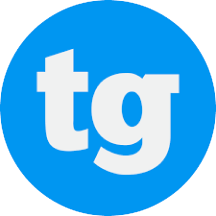OpenAI introduced its own web browser putting the ChatGPT maker in direct competition with Google as more internet users rely on artificial intelligence to answer their questions.
Making its popular AI chatbot a gateway to online searches could allow OpenAI, the world's most valuable startup, to pull in more internet traffic and the revenue made from digital advertising.
It could also further cut off the lifeblood of online publishers if ChatGPT so effectively feeds people summarized information that they stop exploring the internet and clicking on traditional web links.
"Now that OpenAI does have their platform out there, they can leverage that massive installed base that they have,” Angelo Zino, Senior Equity Analyst, CFRA, said. “It now makes them a formidable threat to really take some eyes and greater engagement across others within the search business."
OpenAI has said ChatGPT already has more than 800 million users but many of them get it for free. The San Francisco-based company also sells paid subscriptions but is losing more money than it makes and has been looking for ways to turn a profit.
"Increasing competitive pressures out there for the engagement, the usage time of a user potentially does get disrupted here over the next couple of years,” Zino said. It might not be something that's notable over the next three to six months, but as we kind of look ahead over the next two to three years, what does engagement look like, we really don't know.”
The new browser, launched Tuesday on Apple laptops, aims to make ChatGPT a gateway to online searches. This move could increase OpenAI's internet traffic and advertising revenue. Atlas will eventually be available on Windows, iOS, and Android. The browser faces a tough challenge against Google's Chrome, which has about 3 billion users.
"It's a shot across the bow of Google,” Dan Ives, Global Head of Tech Research at Wedbush Securities, said. "I think it shows the competition that's coming, it's a new world when it comes to AI and OpenAI is not just a new kid on the block, but it's really changing the landscape."
Chrome’s immense success could provide a blueprint for OpenAI as it enters the browser market. When Google released Chrome in 2008, Microsoft’s Internet Explorer was so dominant that few observers believed a new browser could mount a formidable threat.
But Chrome quickly won over legions of admirers by loading webpages more quickly than Internet Explorer while offering other advantages that enabled it to upend the market. Microsoft ended up abandoning Explorer and introducing its Edge browser, which operates similarly to Chrome and holds a distant third place in market share behind Apple's Safari.
A premium feature of the ChatGPT Atlas browser is an “agent mode” that accesses the laptop and effectively clicks around the internet on the person’s behalf, armed with a users’ browser history and what they are seeking to learn and explaining its process as it searches.
About 60% of Americans overall — and 74% of those under 30 — use AI to find information at least some of the time, making online searches one of the most popular uses of AI technology, according to findings from an Associated Press-NORC Center for Public Affairs Research poll taken over the summer.
Google since last year has automatically provided AI-generated responses that attempt to answer a person’s search query, appearing at the top of results.
Reliance on AI chatbots to summarize information they collect online has raised a number of concerns, including the technology's propensity to confidently spout false information, a problem known as hallucination.
The way that chatbots trained on online content spout new writings has been particularly troubling to the news industry, leading The New York Times and other outlets to sue OpenAI for copyright infringement and others, including The Associated Press, to sign licensing deals.
A study of four top AI assistants including ChatGPT and Google’s Gemini released Wednesday showed nearly half their responses were flawed and fell short of the standards of “high-quality” journalism.
The research from the European Broadcasting Union, a group of public broadcasters in 56 countries, compiled the results of more than 3,000 responses to news-related questions to help ascertain quality responses and identify problems to fix.
"They're really the golden child of AI,” Ives said referring to OpenAI. “It speaks to just more and more competition that's gonna come across the board being led by OpenAI, especially toward Google, Apple, and others."
AP video produced by Joseph B. Frederick

 Associated Press US and World News Video
Associated Press US and World News Video
 The San Joaquin Valley Sun
The San Joaquin Valley Sun USA TODAY National
USA TODAY National Syrancuse.com
Syrancuse.com CNN Business
CNN Business Associated Press US News
Associated Press US News Catholic News Agency
Catholic News Agency KLCC
KLCC Las Vegas Sun
Las Vegas Sun The Journal Gazette
The Journal Gazette Edmonton Sun World
Edmonton Sun World TIME
TIME Tom's Guide
Tom's Guide WIRED
WIRED AlterNet
AlterNet